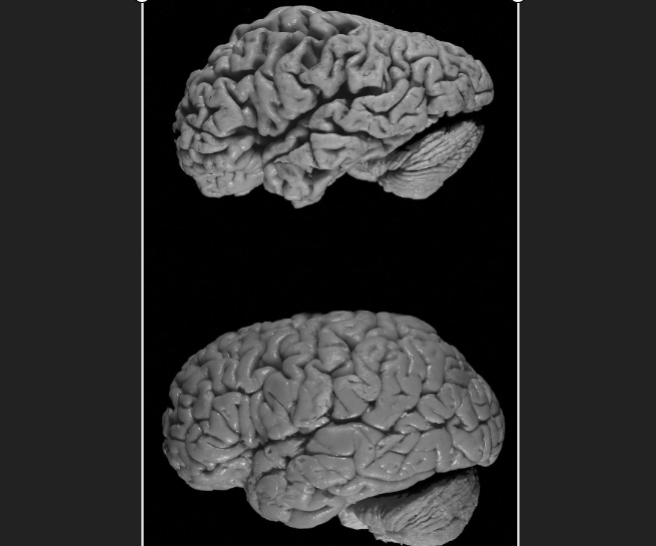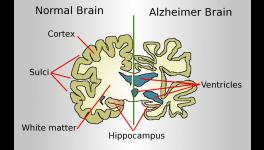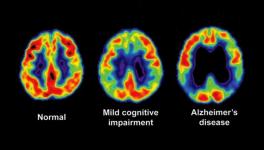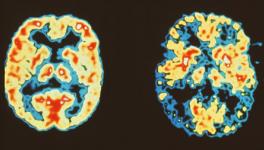Alzheimer’s Disease: Cognitive Decline Prominent Indicator of Life Expectancy

Image courtesy: Wikimedia Commons.
Alzheimer’s disease, which is characterised mainly by memory loss and cognitive decline, also affects the life expectancy of the patient. How much time the patient will live after being diagnosed with the disease can impact the healthcare providers and also his/her family. Recent research published in the Journal of Alzheimer’s Disease has tried to find the biggest factors that determine the life expectancy of an Alzheimer’s patient and could be helpful to healthcare providers in making a proper assistance plan.
Dr. Munro Cullum, a neuropsychologist investigator in the Peter O Donnell Jr. Brain Institute, Texas, who specialises in cognitive assessment and the corresponding author of the study said, “Life expectancy for patients with Alzheimer’s disease typically ranges from 3-12 years but could be longer in some cases. Families are anxious to know what to expect and how to best plan for the time ahead in terms of finances, family caregiving, and how they want to live out their lives. We’re trying to get them better answers.”
The researchers used the dataset from a National Alzheimer’s Coordinating Centre on as many as 764 autopsy-confirmed cases and studied the important factors contributing towards life expectancy among Alzheimer’s patients. The study involved, apart from Cullum, Jeffrey Schaffert as the first author, who is a postdoctoral fellow in clinical neuropsychology at UT Southwestern, Texas.
Out of the many possible variables studied by the researchers, it was found that performance deficiency on a brief cognitive screening test focussed towards orientation was found to be the most significant one. This variable was found to have accounted for about 20% of the variance in life expectancy. This was followed by other factors like sex, age, race or ethnicity and also included neuropsychiatric symptoms, functional impairment ratings, etc.
Explaining the results of the analyses, Schaffert said, “We found that beyond global cognitive function, patients who were older, non-Hispanic, male and who had more motor and psychiatric symptoms had a significantly shorter life expectancy.”
The data for the analyses were taken from clinical as well as autopsy reports on patients who succumbed to Alzheimer’s between 2005 and 2015. The confirmation of Alzheimer’s in the considered dataset was done on the basis of traditional abnormalities observed in brain autopsy (Autopsy is a detailed dissection of an organ of a deceased person and is done for determining the exact cause of the death) specimens.
These also included the presence of abnormal aggregation of proteins. It is well known that dementia patients, especially in Alzheimer’s disease, have an abnormal aggregation of a particular protein named beta amyloid, which has not been fully understood yet despite extensive research. In the study group, life expectancy ranged from one month to 130 months after the diagnosis of Alzheimer’s—most of the individuals in the study group were diagnosed on their first visit.
Schaffert further explained that most previous studies were focussed on a few variables out of the 21 identified factors for life expectancy and weren’t based on autopsy results. In this research, the researchers analysed a complete set of 14 variables, which is the largest to date.
However, the researchers had a word of caution—life expectancy among Alzheimer’s patients is a complex phenomenon and influenced by many factors. The study found cognitive decline as a strong factor, and the researchers plan to follow up with more sensitive measures in the future. “This dataset was largely derived from well-educated white patients who donated their brains to research. We would like to extend this work to better reflect our more diverse patient population”, said Cullum.
Get the latest reports & analysis with people's perspective on Protests, movements & deep analytical videos, discussions of the current affairs in your Telegram app. Subscribe to NewsClick's Telegram channel & get Real-Time updates on stories, as they get published on our website.
























